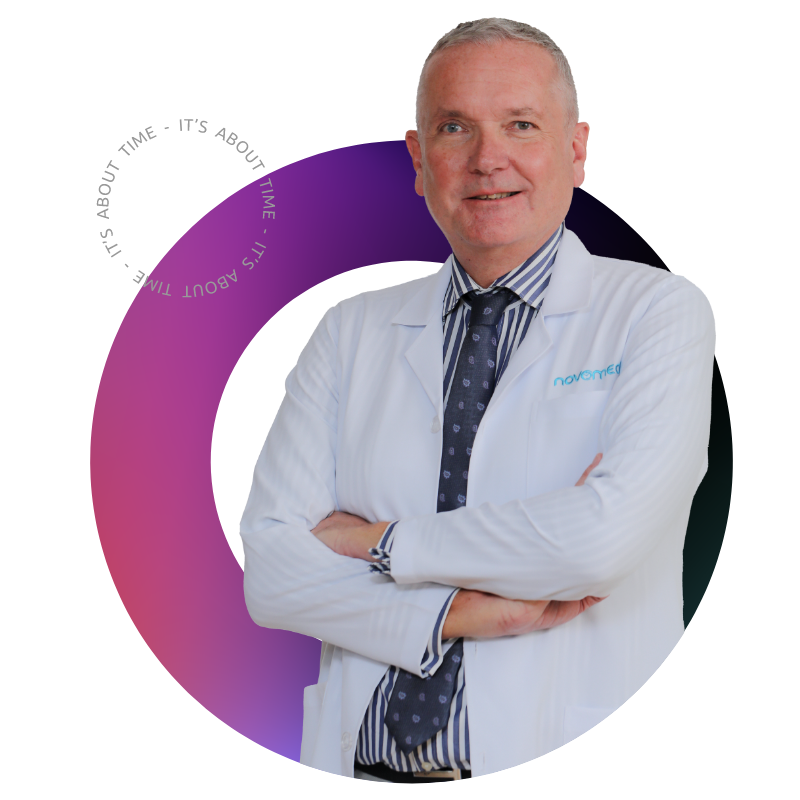What is carpal tunnel syndrome?
Carpal tunnel syndrome is caused by pressure on the median nerve. The carpal tunnel is a narrow passageway surrounded by bones and ligaments on the side of the palm. When the median nerve is compressed, symptoms may include feeling numbness, tingling, and weakness in the hand and arm.
Anatomy of the wrist, health problems and possible repetitive hand movements can also contribute to this condition. Appropriate treatment can relieve tingling and numbness and restore wrist and hand function.
What is the cause of carpal tunnel syndrome?
Carpal tunnel syndrome is caused by pressure on the median nerve. The median nerve passes from the forearm through the passage in your wrist (carpal tunnel) to reach your hand. This nerve is responsible for feeling the lateral part of the palm of the thumb and fingers except for the little finger. It also sends nerve signals to move the muscles in the base of the thumb.
Anything that compresses or irritates the median nerve in the carpal tunnel area may lead to carpal tunnel syndrome. A fractured wrist may cause narrowing of the carpal tunnel and irritation of nerves. This can also occur because of swelling and inflammation from rheumatoid arthritis.
Often, there is no single cause for carpal tunnel syndrome. A combination of risk factors may be contributing to the condition. These risk factors include:
- Injuries. A fracture or dislocation of the wrist, or arthritis that distorts the shape of the bones in the wrist, can alter the space inside the carpal tunnel and put pressure on the median nerve.
- Gender. Carpal tunnel syndrome is generally most common in women. This may be due to the relatively small area of the carpal tunnel in women compared to men.
- Nerve damage. Certain chronic diseases, such as diabetes, increase your risk of nerve damage, including damage to the median nerve.
- Inflammatory diseases. Rheumatoid arthritis and other conditions with an inflammatory component can affect the lining around your wrist tendons and put pressure on your median nerve.
- Obesity. Obesity is a risk factor for carpal tunnel syndrome.
- Medications. Some studies have demonstrated a link between carpal tunnel syndrome and the use of anastrozole, a drug used to treat breast cancer.
- Other medical conditions. Other conditions, such as menopause, thyroid disorders, kidney failure and lymphedema, may increase your chance of developing carpal tunnel syndrome.
- Work environment factors. Working with drilling tools or assembly lines that require prolonged or repeated bending of the wrist may result in harmful pressure on the median nerve or worsen the already existing nerve damage, especially if the work is performed in a cold-temperature environment.
How is carpal tunnel syndrome diagnosed?
Our neurologist will review the pattern of your symptoms. For example, since the median nerve does not affect your little finger, symptoms in that finger may indicate a problem other than carpal tunnel syndrome. Your doctor will check the feeling in your fingers and the muscle tone in your hand. Bending the wrist or simply pinching a nerve can trigger symptoms in many people. Moreover, the doctor will run some tests to confirm the diagnoses, including:
- X ray. X-ray of the affected wrist can help rule out other possible causes of wrist pain, such as arthritis or a fracture. However, X-rays do not help diagnose carpal tunnel syndrome.
- Electromyography. This test measures the tiny electrical charges that form in muscles. During this test, your doctor inserts a thin needle electrode into specific muscles to evaluate the electrical activity when the muscles are contracted and stretched. This test can identify damage to the muscles controlled by the median nerve and may also rule out other conditions.
- Nerve conduction study. In a modified pattern of EMG, two electrodes are attached to your skin. A small shock is passed through the median nerve to see if electrical impulses are slowing down in the carpal tunnel. This test can be used to diagnose your condition and rule out other conditions.
How is carpal tunnel syndrome treated?
Non-surgical treatments
Wrist splinting. A splint that keeps the wrist in place during sleep can help relieve symptoms of numbness and tingling at night. Even if you only wear a splint at night, it may also help prevent symptoms during the day.
Nonsteroidal anti-inflammatory drugs (NSAIDs). NSAIDs such as ibuprofen may help relieve pain from carpal tunnel syndrome for a short time.
Corticosteroids. Your doctor may inject corticosteroids, such as cortisone, into the carpal tunnel to relieve pain.
Surgical treatment
Surgery may be appropriate if symptoms are severe or do not respond to other treatments.
The goal of carpal tunnel surgery is to relieve pressure by cutting the ligament that is pressing on the median nerve.
The surgery can be performed with two different techniques:
- Endoscopic surgery. The surgeon uses a telescope-like device with a small camera attached to it (endoscope) to view the carpal tunnel from the inside. Then the surgeon cuts the ligament through a small surgical incision in your hand or wrist. Endoscopic surgery may cause less pain than open surgery for the first few days or weeks after surgery.
- Open surgery. The surgeon makes an incision in the palm of your hand along the carpal tunnel and cuts the ligament to free the nerve.
During the healing process after surgery, the ligament tissue grows gradually again allowing more room for the nerve. This internal healing process usually takes several months, but the skin heals within a few weeks.
Your doctor will generally encourage you to use your hand after the ligament has healed, and gradually work towards the normal use of your hand while initially avoiding forceful hand movements or improper wrist positions.
Pain or weakness after surgery may last from several weeks to a few months until it goes away. If symptoms are very severe, symptoms may not completely go away after surgery.


























